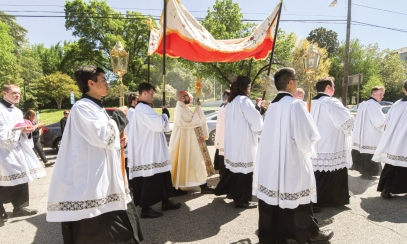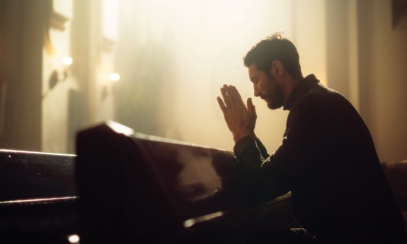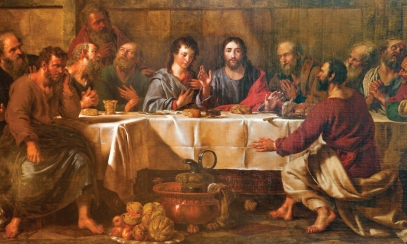
The Eucharist as revelatory
In our most recent reflection, we discussed the beauty of the Eucharist as a foretaste of heavenly communion. We mentioned that our experience of the Eucharist is an experience of the risen Lord and therefore points to the promise of our own bodily resurrection. So let’s continue reflecting on this notion with an eye toward the everyday also.
In our most recent reflection, we discussed the beauty of the Eucharist as a foretaste of heavenly communion. We mentioned that our experience of the Eucharist is an experience of the risen Lord and therefore points to the promise of our own bodily resurrection. So let’s continue reflecting on this notion with an eye toward the everyday also.
The Eucharist, as an encounter with the whole and living Christ, is a revelation of God and his boundless love to us. This is manifested in the Eucharist as the re-presentation of the sacrifice on Calvary and as a share in the divine life of communion. We also come to know ourselves better through this encounter.
But this self-knowledge is nothing like the self-centeredness that plagues our culture or us as individuals. It is precisely the opposite; it shows us that we only really know ourselves in relation to others. It particularly shows in relation to the infinite and absolute other, God. Christ teaches us that only by giving of ourselves do we come to realize our deepest calling and identity. This gift of self is on display in a clear and full way in the Eucharist.
Christ — in his Incarnation, Paschal Mystery and all that he continues to do through the sacramental economy in the Church — continuously reveals humanity to itself. Jesus shows us how to truly be what we are by taking on our human nature. That is, by becoming what we are. This is how we take seriously all the moral teachings that he lays out for us. All that Jesus is, says and does shed light on what it means to be human. His life, death and Resurrection all bring humanity to the destination for which we were created: union with God.
So, Christ reveals God to us and reveals us to ourselves, therefore the Eucharist is revelatory of divinity and humanity because we are encountering him fully in it. This revelatory character of the Eucharist, with its many facets, has allowed us to sustain reflections here throughout the National Eucharistic Revival.
Anyone who has spent a little bit of time in quiet adoration or sincere worship during the eucharistic liturgy knows that there is something intangible there. It goes beyond the tangibility of the sacrament and is mediated through it. This intangible encounter with the transcendent — that is, the one who goes infinitely beyond anything we can imagine — begins to shape our mentality and permeate our lives. We often think of revelation as the passing on of ideas as if the faith were a set of concepts. Our faith has many ideas and concepts that are vital to living the fullest life possible, but revelation in its deepest meaning is an intimate encounter with another person, the other person, Christ.
We have been given the gift of the Eucharist and the other sacraments as we cultivate our relationship with Christ to help us grow closer to him as Christians. We come to understand ourselves better as we draw closer to him. We gain self-understanding from Scripture and from the teachings of the Church, but we also learn from our time spent with him in the Eucharist.
We place ourselves where earth and heaven meet when we give our hearts to him in genuine worship and receive his presence with openness. It is the place where the story of creation and redemption converge as one story of love.
Michael Martocchio, Ph.D., is the secretary of discipleship and the director of the Office of Catechesis and Christian Initiation. Email him at mmartocchio@charlestondiocese.org.



